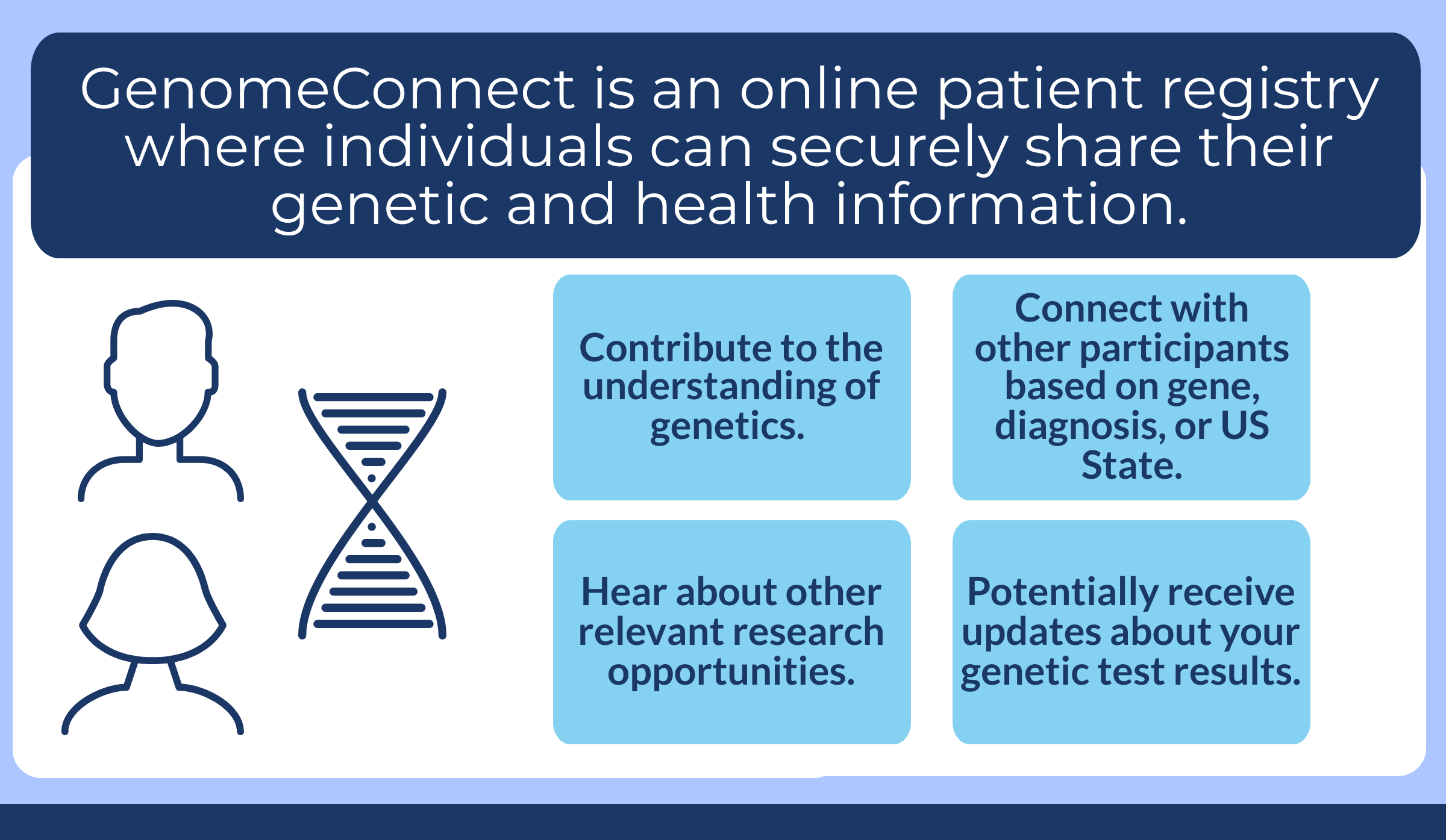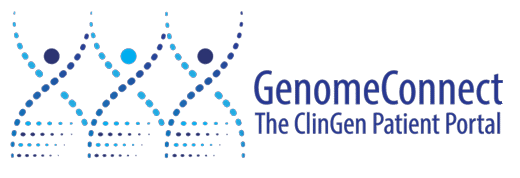What is GenomeConnect?
GenomeConnect is part of the Clinical Genome Resource (ClinGen), an NIH funded research project. GenomeConnect is a registry that helps you share your genetic and health information. Sharing this information will help increase our understanding of how genes affect health.

GenomeConnect is open to anyone who has had genetic testing or parents/guardians of someone who has had testing regardless of their health history or genetic test results. Participating in GenomeConnect is as easy as:
Sign-up
Consent to Participate
Upload a copy of your genetic test results
Fill out your health history
Why is Data Sharing Important?
When a laboratory finds a genetic change (variant) for the first time, often little is known about its effect on human health. Even if a genetic variant is well understood, data sharing helps increase understanding of a condition’s features, which may help identify possible interventions and treatments. The more information collected, the better researchers will understand how genes affect health and, ultimately, how best to care for patients.
